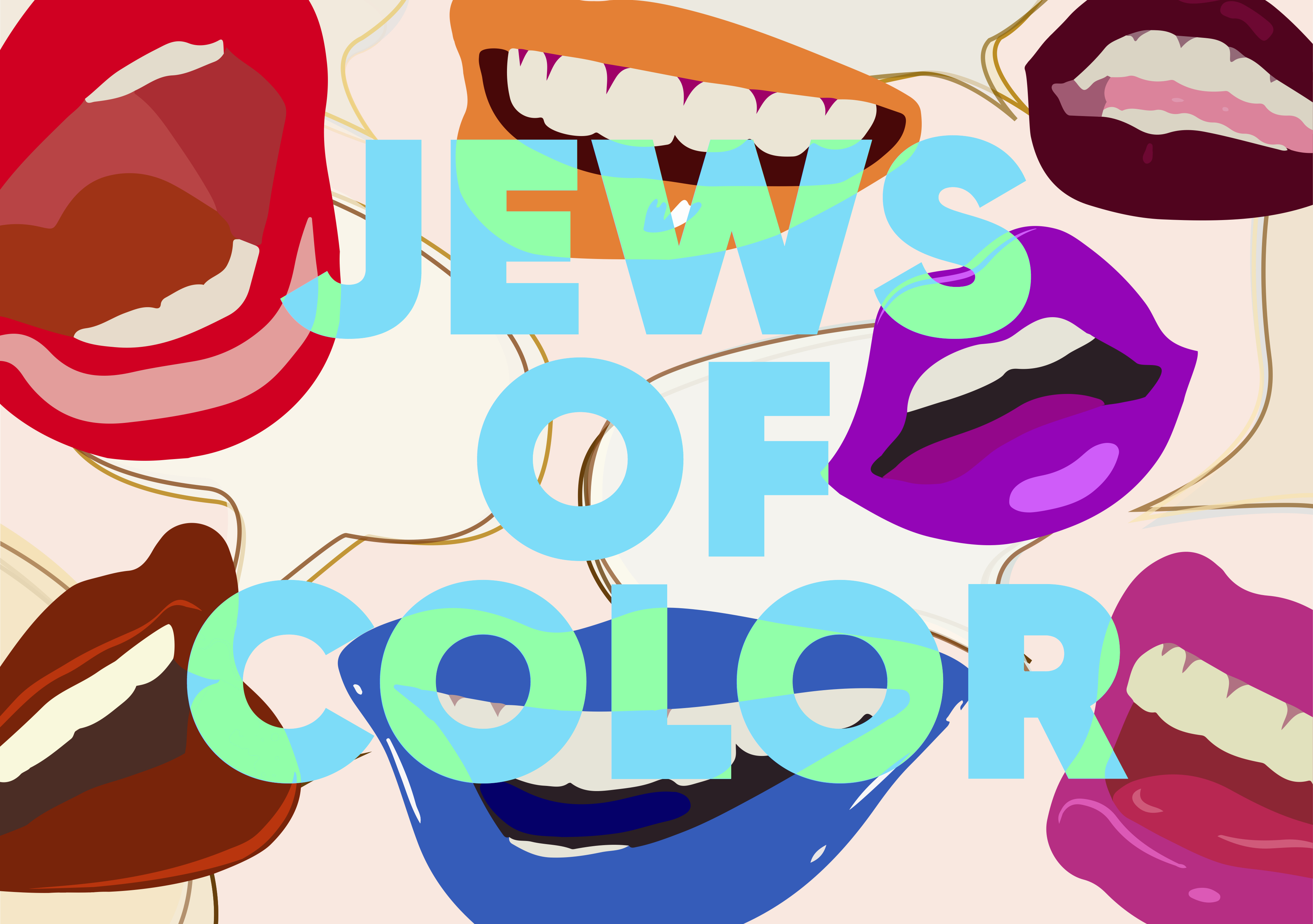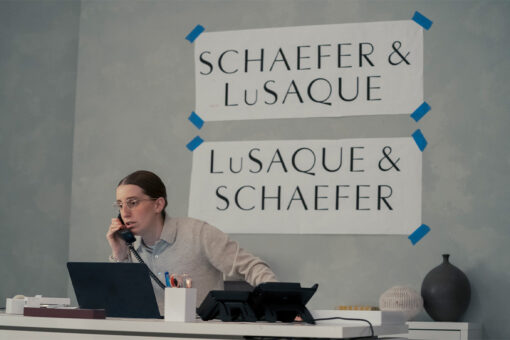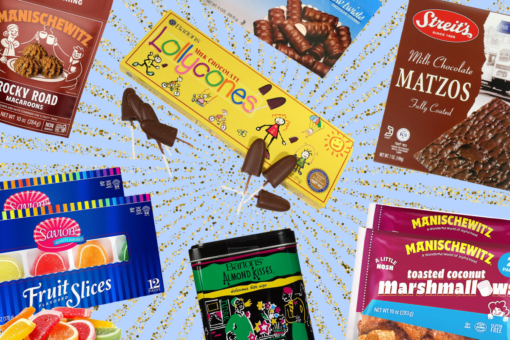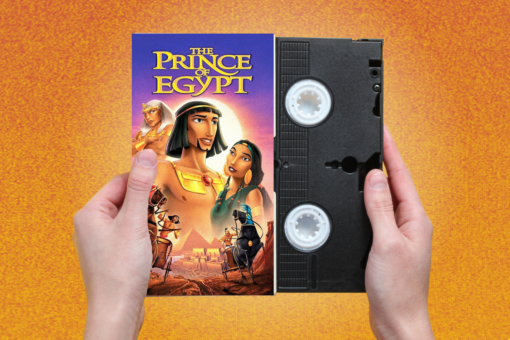Our third Alma roundtable tackles the struggle facing many Jews of color: how do you navigate Judaism, and Jewish spaces? How do you deal with misconceptions, micro-aggressions, and everything in between?
Moderated by Alma contributor Nylah Burton, 23, from Denver, Colorado, she was joined by five other Jews of color: Helena Thompson-Cohen, 29, from Seattle, Washington, Michelle Samani, 36, from Los Angeles, California, Sarah Elizabeth Hartman, 28, from San Francisco, California, Victoria Gagliardo-Silver, from New York, New York, and Yifat*, 26, from Jerusalem, Israel.
They identify as the following:
Nylah, African-American Jew with Caribbean heritage
Sarah, Romani Jewish and first generation American
Michelle, first generation American and Persian Jewish. “I’m a ‘caramel Jew.'”
Victoria, bi-racial black and Ashki [Ashkenazi] American Jew; quarter Native American
Helena, “I am blackety black black blaaaaaaaaaaaaaaaaaaaaaaaaaaack”
Yifat, Yemenite and Ashkenazi
*Name has been changed per participant’s request. The conversation has been edited and condensed.

What are some of the most annoying or hurtful micro-aggressions that you hear from non-POC Jews?
Helena: The basic one: “so HOW are you Jewish?”
Sarah: “Oh when did your family convert?” or “You’re not REALLY Jewish though, right?”
Victoria: “When did you convert?” “Were you adopted?”
Helena: “Checking in” to make sure I’m not “lost” during services
Sarah: “Well I didn’t know about Romani Jews so I don’t think they exist.”
Nylah: I hate it when I have a full-ass conversation with someone and mention ALL this Jewish stuff and after a few hours they act all shocked and say, “Are you Jewish?”
Helena: YES to that one too, Nylah!
Nylah: Like no, I just like experiencing oppression for fun.
Michelle: “There’s Jews from Iran?!?!?!?!?”
Yifat: It’s frustrating when I say something about being Ashkenazi, and Ashkenazi Jews behave as if my Yemenite parents makes me not able to claim being Ashkenazi, too.
Victoria: “Is your dad Jewish too?”
How do you feel when people say stuff like this?
Yifat: It’s isolating.
Sarah: Angry. So angry. And rejected and isolated and upset.
Michelle: I am constantly getting pissed that white is the norm.
Helena: Same. It makes me question whether or not it’s worth it to be a part of some Jewish communities.
Sarah: YES.
Nylah: The last time it happened to me — which was last week — I literally cried for two hours.
Victoria: It’s not a welcoming feeling in the Jewish community to be seen as the odd one out for being a POC.
Michelle: I want to be appreciated not despite my color and background, but because of it.
Sarah: I have so much bitterness and resentment from years of being isolated and interrogated about my Jewishness.

Speaking of that, how do you feel when people accuse you of lying about being Jewish?
Sarah: I get furious.
Victoria: No one asks white Jews to prove they’re Jewish. Not ever.
Helena: Never. We get QUIZZED.
Sarah: It’s so ignorant for them to say.
Helena: They try to trip us up. They want us to do family trees and do that fake kind of Jewish geography.
Sarah: It just smacks of bigotry within the [Jewish] community, and it pisses me off. Especially as so many Jews claim to be progressive, but suddenly regress when they see me or any of us.
Nylah: I don’t think they realize how hard it is to be a POC Jew. None of us would just “try” on this life for fun. Because, as you all said, it’s isolating.
Sarah: Having strangers demand your DNA and family tree is such an invasive thing.
Helena: It’s honestly disgusting to see this happening in left-leaning spaces. Like, I thought we covered this one!
What do you do when the tokenizing happens and in what ways do y’all feel tokenized?
Sarah: A lot of white Jews like to use Romani as a token when they talk about the Holocaust. And I hate it. Because the same ones will turn around and accuse me of being a fake Jew!
Michelle: I feel tokenized when people think I speak for all Iranian Jews. I also hate when people say, “You’re so *insert good quality*… not like the other Persian Jews!” I don’t like being a commodity.
Sarah: I am exhausted with being expected to always do all the educating about my people to anyone that asks. Because if I don’t, I’m a “fairy tale.”
Helena: It’s quite rare for me to find a genuine friend amongst white Jews. I always feel like their trophy, their ticket to instant credibility. But I find when I want to speak on intra-community issues, I’m pushed back into “my lane.”
Nylah: I feel also like I am accepted when I am speaking about race or speaking out against anti-Semites like Farrakhan. Which of course I do, because he fucking sucks.
Sarah: Yeah, I find myself waiting for the moment where they say something shitty, or worse: are just silent when I’m defending myself from other white Jews’ attacks.
Michelle: I have had so many negative experience being sexually fetishized by Jewish men who are more white-passing.
Helena: Absolutely.
Nylah: Yes, this has happened to me!
Helena: See: my first like, four boyfriends.
Sarah: Fetishizing is almost a given.
Nylah: A direct quote: “We’ll make beautiful island Jew babies.”

So, let’s talk about dating… how is that? Both in the Jewish community and outside of it? How does your ethnicity and the way you are perceived affect your dating life?
Sarah: “Woke” Jewish guys like to think that being aware Roma exist means it’s okay to say things like, “Roma girls are so into sex haha you guys have no shame.”
Yifat: Lol, being called exotic.
Sarah: To be honest, I feel more at home with non-Jewish POC. I feel like they interrogate me less about my Jewishness. But of course, it’s always hard, because there’s no one exactly like me — of my people — so there’s always a sense of loneliness. (Which is why y’all make my life possible.)
Michelle: I often feel more comfortable in my own skin when dating non-Jewish POC than with fellow Jews because of ashkenormativity and various prejudices.
Helena: My entire life, up ‘til Gary [my husband], I felt either fetishized or repulsing. Like they wanted to get their “swirl on.” Direct quote. OR they didn’t pay attention to me because they were so drunk on euro-centric standards of beauty.
Michelle: Exactly, re: the standards of beauty. When skinny bodies and straight hair are the norm, that inhibits my “game,” and I don’t want to be in spaces where that is the absolutist reality.
Nylah: Yeah… the invisibility is so isolating.
Sarah: My partner being non-Jewish, I feel like he takes my Jewish experience more seriously than other Jews.
Nylah: I feel so comfortable with my partner, because he never subjects me to these purity tests and I don’t have to constantly hear microaggressions.
Helena: Yes, same. I don’t have to choose around him, between being black and Jewish. I can just be.
Sarah: That’s the thing, Helena – I feel like among Jews, I have to choose. But Ashkies [Ashkenazi Jews] don’t have to choose.
Nylah: Dating is so hard when you’re a Jewish POC.
Do you think that Jews of Color are less discriminated against outside of America? For those of you who don’t live in Israel, would you make aliyah or does the racial discrimination there scare you?
Sarah: I’m conflicted about aliyah. On the one hand, there are actually more people like me there [in Israel], than here. But on the other, I mean, it’s a different culture. I don’t know how they relate to Roma really. And it’s scary, because people are violent toward Roma. And I doubt that I’d even be accepted, with the Rabbinate’s weird strict rulings and exclusion of other Jews of Color.
Helena: I would make aliyah in a heartbeat. It’d be a challenge for sure, but I bet y’all a million dollars it can’t be MORE dangerous for me there as a black woman.
Nylah: I don’t think I would be accepted for aliyah unless I had an Orthodox conversion, which is something I want eventually, but I don’t like feeling that I have to prove my Jewishness by doing it.
Victoria: I wouldn’t make aliyah at this time. I’m happy in New York. Maybe if I became more religious, but not at this point.

What are some of your favorite family traditions that incorporate your ethnicities and your Judaism?
Sarah: Just food, really. Saffron challah sums a lot up. It’s Jewish in this traditional sense, but it has different flavor.
Helena: It’s all food.
Yifat: Food, dance, music.
Sarah: Food and dance say so much about culture. And food is a big part of Jewish tradition and ritual, too. So adding your culture to that tradition makes it uniquely you.
Yifat: I listen to a ton of Yemenite music… we have foods for different holidays, for Shabbat, also Passover is my favorite because it is when I felt the most tangibly Yemenite (I grew up in an Ashkenazi community).
Michelle: We make a Shabbat meatball called gondhi that looks a bit like matzah balls in a way. And we have our own version of cholent called halim.
Sarah: Our cholent is goulash.
Nylah: There’s such a rich history of Jews in the Caribbean, and food is one of the strongest elements of that. Everything Ashkenazi that my grandma makes has so many Caribbean spices and ingredients. I love it.
Helena: I married Ashki, so obvs I have to do brisket all the time. But everything tastes better when a black woman cooks it. Gary’s mom even agrees.
Nylah: Food is how I’ve always connected to Judaism, even when I didn’t identify as Jewish. My dad and grandma made latkes and brisket and stews and… now I’m hungry.
Helena: Not only how the food tastes, but how it’s prepared.
Sarah: Yes! Preparation has its own soul and ritual.
Helena: I’m thinking about: kneading challah, shelling peas, etc etc… the little tasks that bring (in my fam) the women together to gossip and vent and find support.
Nylah: The kitchen is such a hub, not just for women, but particularly marginalized women. I had the same experience with my mom’s family from the South.
Helena: The heart of Jewish AND black households? The kitchen.

What are some of other the things/experiences that you love about being a Jew of Color?
Sarah: The honor of my people’s history.
Helena: It’s a miracle that we’re here.
Nylah: I like that, because it’s so hard and lonely, I am actually much more committed to my Judaism than I think I would be if it were easier. I love learning more and more about the history of Jews in the Caribbean because it makes me feel smart and validated. Helena, we are literally the roses that grew out of concrete, right? (That was a Tupac reference!)
Sarah: The phrase opre Roma sums it up to me. Stand up. We rise up. It’s rebellious and fierce in a way that your average Jew doesn’t identify with.
Michelle: I love feeling a deep kinship with other people of color who are not Jews. It makes me feel like there is a sense of universal kinship in this world
What’s the biggest challenge you face, being a Jew of Color?
Victoria: The lack of inclusion and the automatic assumption that I’m not Jewish. It’s alienating.
Sarah: Constantly feeling defensive and litigated and under siege by other Jews who are convinced I’m somehow fake. It’s so exhausting. I cry about it on regular occasions. That constant defense is so hard and so tiring to put up with.
Helena: The uncertainty of whether or not someone will accept me in a new place.
Michelle: I hate feeling like I can’t fit into anyone’s box.
Yifat: I get that feeling, Michelle, cause I’ve always had it, too. But you weren’t meant to fit into a box so…!
Victoria: Absolutely.
Nylah: None of you were meant to fit into a box. Judaism is so diverse and amazing. I just wish more white-passing Jews realized this.
Sarah: I wish they learned more about other communities so we weren’t so alien. And so that we didn’t have to give a history lesson every day. And because of a total lack of written history of my people I’m like… responsible for the entire history of my population’s historic archives. Like, damn, it’s not my fault Europe denied us basic educational rights!
Victoria: I’ve met some wonderful people in NYC that make me feel included and appreciated.
Nylah: That’s so great, where did you meet them?
Victoria: Honestly, on Jewbook.
 Can we talk about the importance of Jewbook [Jewish groups on Facebook] to Jews of Color?
Can we talk about the importance of Jewbook [Jewish groups on Facebook] to Jews of Color?
Nylah: It is what has made me stay in the Jewish community instead of becoming isolated.
Sarah: Yes. It’s a lifesaver. Y’all are my Wilson volleyball on this island of Jews of Color. Except you’re all REAL.
Nylah: I met all of you.
Yifat: I can’t tell you how happy that makes me, Nylah.
Helena: There are like, three Jews in Seattle and I’m married to one of them. Without Jewbook, I’d be talking to a brick wall all day.
Yifat: Seattle has one of the biggest Ottoman Jewish communities in the states! Like Turks and Greeks.
Sarah: There’s lots of Jews here and they’re like, all white. I feel lonelier there than being alone.
Michelle: A lot of white Jews don’t understand that non-white is not just skin color. It’s culture, ethnicity, traditions, etc. too. Many people consider me to be light-skinned, but I am not usually read as white, for other reasons. There’s a lot of skin-color based gatekeeping in many spaces.
Nylah: People keep telling me to join an Ethiopian synagogue and I’m like… I don’t know if I’d be accepted there either. But honestly I might.

How have you found a POC Jewish community?
Victoria: I like being unique, but I have yet to find a Jewish POC community.
Yifat: Yeah, in Israel.
Sarah: I mean, this one! For sure. It’s been more welcoming than any other.
Helena: This groupchat!
Nylah: I love you all so much.
Michelle: I love you infinitely.
Sarah: It feels like home.
Nylah: Yeah the reason this roundtable is so fun is because it’s literally just what we do every day.
Sarah: I’m not trying to hide or educate or give energy here. I’m just me.
Helena: I’m always cackling at one of y’all, it’s great.
Michelle: I love that I can keep it real and no one will gaslight or challenge me.
Nylah: YES. I can just be myself with you all. I don’t always have to justify why I’m in this space.
Helena: I don’t have to explain why anything has made me upset or why I’m so excited about something because y’all just KNOW.
Sarah: Like, we have each other’s backs. Like in a different way that a white Jew or white person may or may not defend you. Like we all will go nuclear on each other’s behalf.
Michelle: You are all the people I wish I had when I was younger.
Nylah: Yup. You all instinctively get me in a way very few people on this planet do. And that’s what makes being a JOC so scary and lonely but also wonderful. It’s so intimate and I feel like we’re family.
Helena: We’re all different, but the struggle is universal.

What do you hope white Jews can take away from this roundtable?
Sarah: I hope white Jews can read this and learn.
Helena: I hope white Jews can read this and lead, too. I hope they take this back to their communities and educate. I hope they seek out opportunities to be more inclusive.
Sarah: I hope they learn about our communities on their own.
Nylah: I hope they learn to be more accepting and less accusatory of JPOC, especially converts.
Michelle: WHITE IS NOT THE NORM. WHITE IS NOT THE PRESUMPTIVE DESTINATION.
Nylah: EUROPEAN HERITAGE IS NOT THE GOALPOST!
Sarah: I don’t wanna be white and I don’t wanna try to be white. I want them to learn about my people instead.
Nylah: I hope they see that being exclusionary actually leads people who are born Jewish away from Judaism.
Helena: I hope they challenge their notions of what it means to be Jewish.
Nylah: I hope they learn that we are all oppressed, and that by being racist towards each other, they’re only aiding in the oppression of us all.
Alma Roundtable is a new series where we gather self-identifying Jewish millennial women to discuss complex issues facing us today. This sounds so serious. We promise it’s more casual. If you want to see a topic discussed, please e-mail us at hello@heyalma.com.



